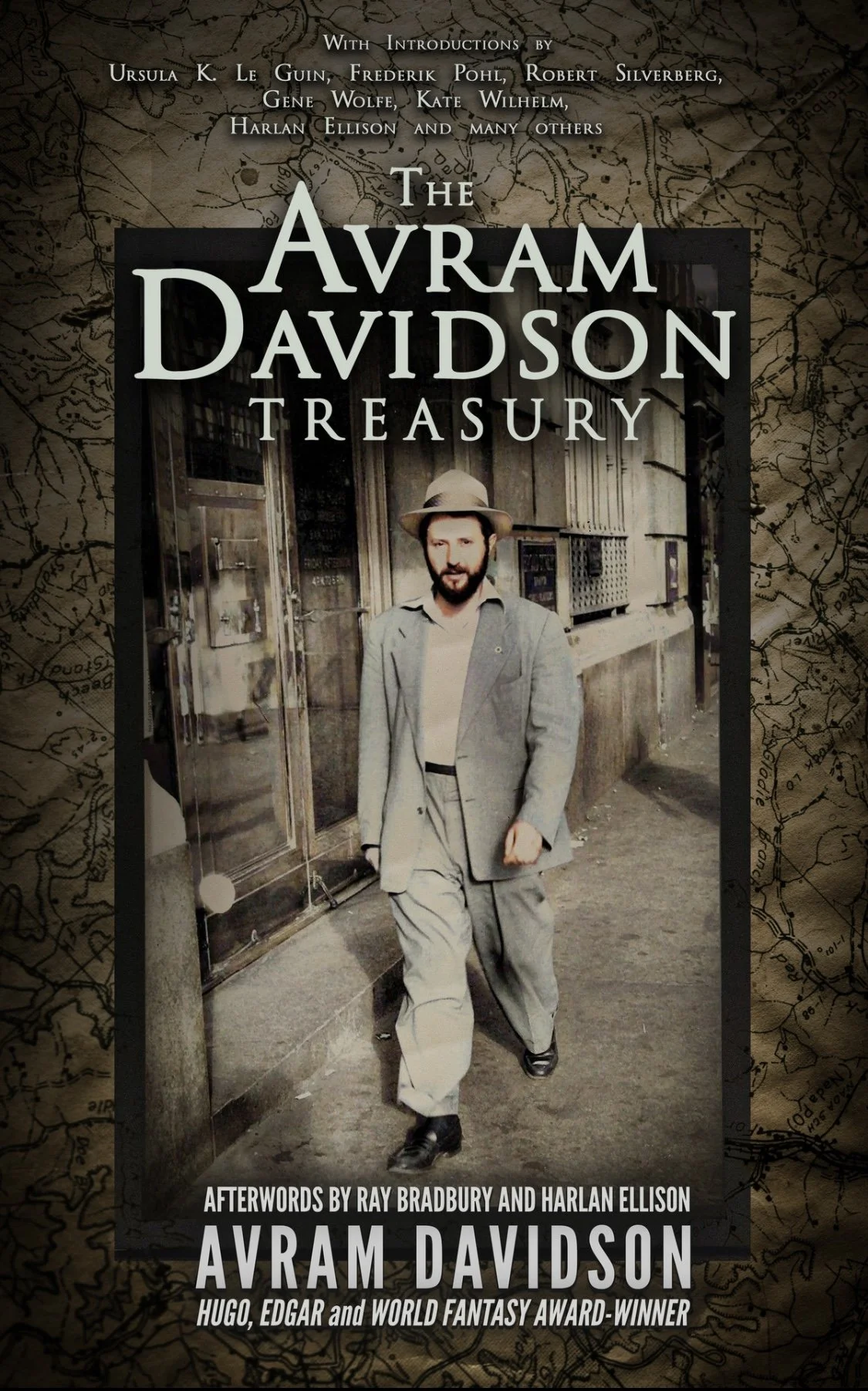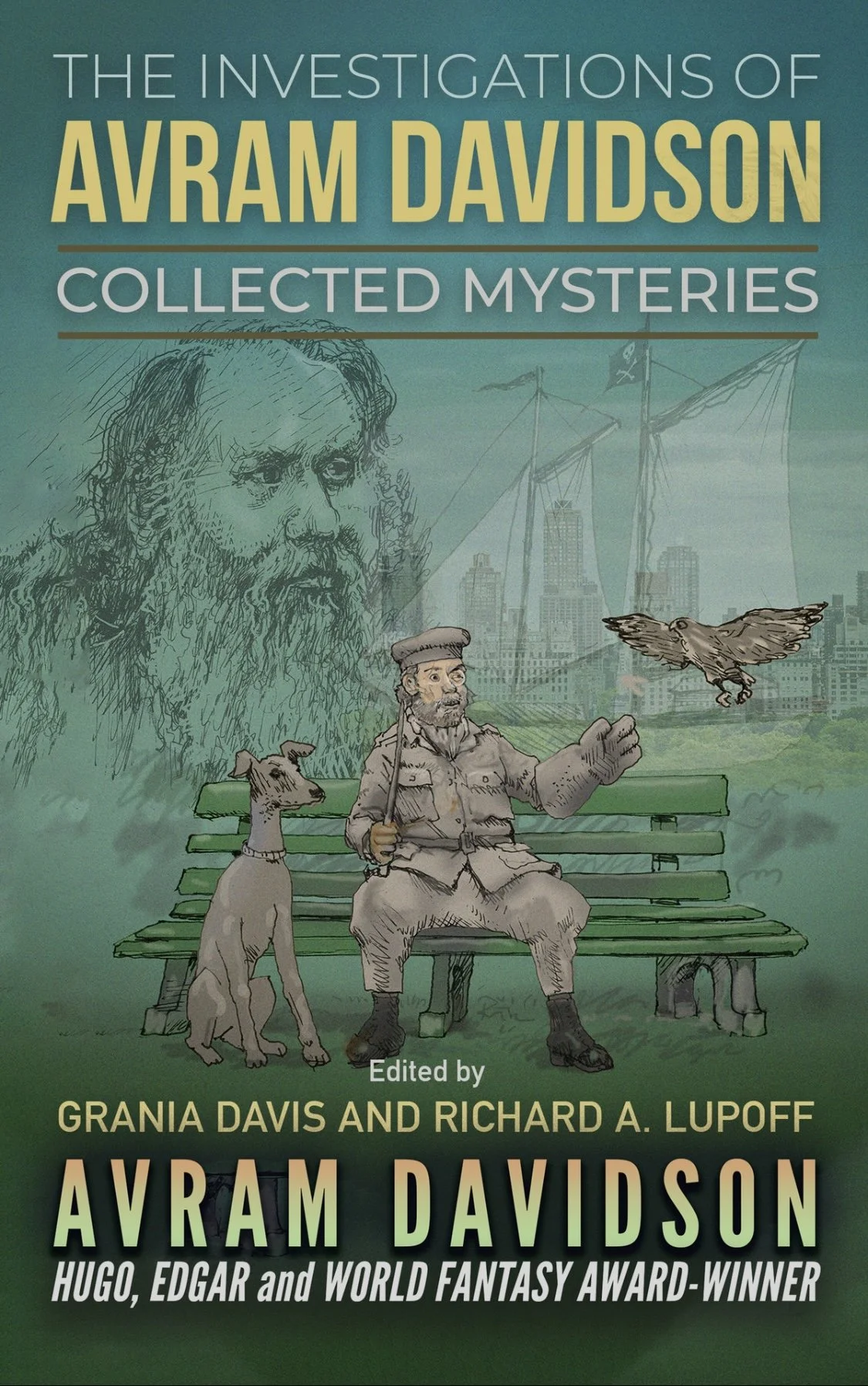Words are about to fail me. Watch: The writer Avram Davidson (1923-1993) was one of the most inventive writers of all time. See? That sentence stinks, because it really doesn’t convey just what an incredible stylist and prose master the man was. He’s probably best known for writing short stories in the realms of science fiction and fantasy, mostly for magazines that modern readers would call the pulps. But he also wrote mystery fiction and novels.
I’m honored this month to be a guest on a podcast devoted to his work, The Avram Davidson Universe. You can check out that episode right here:
Avram Davidson Universe, Season 4, Episode 3: Captain Pasharooney
The link gives you the option of listening on the usual suspects—Spotify and Apple iTunes—and a link to paste into the app of your choice.
You can also watch our conversation right here:
“Captain Pasharooney”—the subject of my talk with host Seth Davis—is a charming story about a reunion between a father and very young son in 1960s Manhattan. Only, it’s much, much more. The story belongs solidly in the realm of short mystery fiction, and first appeared in The Saint Mystery Magazine, May 1967.
Online bios of Avram often say that his work defies description, and that’s true.
He wrote a short story about a dentist who is kidnapped by aliens and sends a coded message back to Earth embedded in a set of false teeth. Now only the world’s finest dental plate specialists can save Earth from an imminent invasion!
He wrote a story postulating that the reason you could never find a safety pin when you needed it but your closet was always overstocked with clothes hangers is that pins are the larval form of hangers. Another alien life story, this time as close as your dressing room.
It was wacky stuff.
But Davidson’s work could also be deeply poignant, and often weighted in favor of the underdog. His stories typically revealed Davidson’s profound depth of scholarship and erudition. He was, early in his career, bound for the life of a Talmudic scholar. Thank god he changed his path! But that love of learning allowed him to name-drop and deploy abstruse factoids like no one before him—or since. At first glance, “Captain Pasharooney” doesn’t appear to showcase Davidson’s deep learning. But as I make abundantly clear in this podcast episode, a modern reader must rely on Google to shed light on the story’s details. Details, I would add, that Davidson knew cold, from a lifetime of heavy reading.
Davidson died in 1993. During the pandemic, his godson and literary executor ascended to the attic and started digging through the man’s fiction. Seth Davis has since mounted an ambitious project to share Avram’s work with the world. He’s brought out new editions of Davidson’s work, and launched a marvelous podcast that offers highly professional readings of Avram’s short stories, bracketed by conversation and story analysis.
If you like the podcast, I hope you’ll check out Davidson’s work. All of these recommendations come with affiliate links. The first is the classic treasury, a 660-page doorstopper that contains most of his famous short stories. This is the book I first discovered of his, back when I was working in NYC.
The Avram Davidson Treasury
If you’re really into mysteries, you should also check out this collection:
The Investigations of Avram Davidson
There are a lot more books, of course, which I’ll leave you to discover. But a great way to digest his work is to download the audiobooks, which are read by EXCELLENT actors and voice performers. You can check those out here:
The Avram Davidson Treasury audiobook
The Investigations of Avram Davidson audiobook
If you enjoy even just one of his stories, I urge you to consider bookmarking the podcast on your device for future listening. You can find out more at the Official Avram Davidson Website.
Only one comment I must make about the podcast. I’m pretty sure I misspoke at one point discussing the books Avram ghost-wrote for Ellery Queen. The books Avram penned were And on the Eighth Day (a great novel) and The Fourth Side of the Triangle. I got the former correct, but botched the second. I apologize. Words failed me—again.


